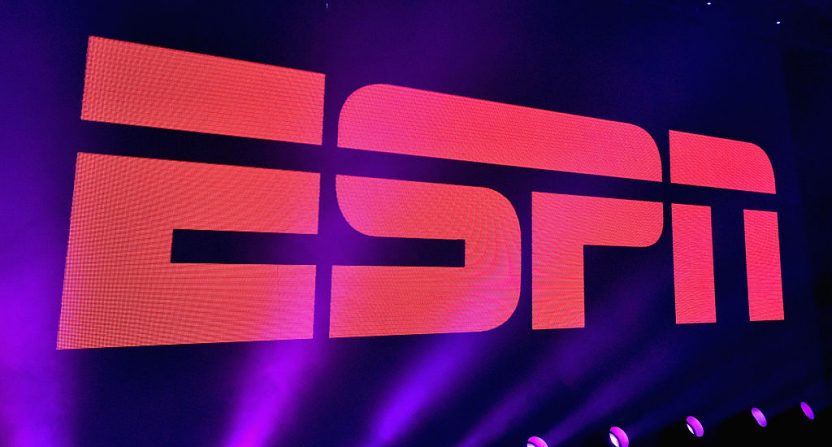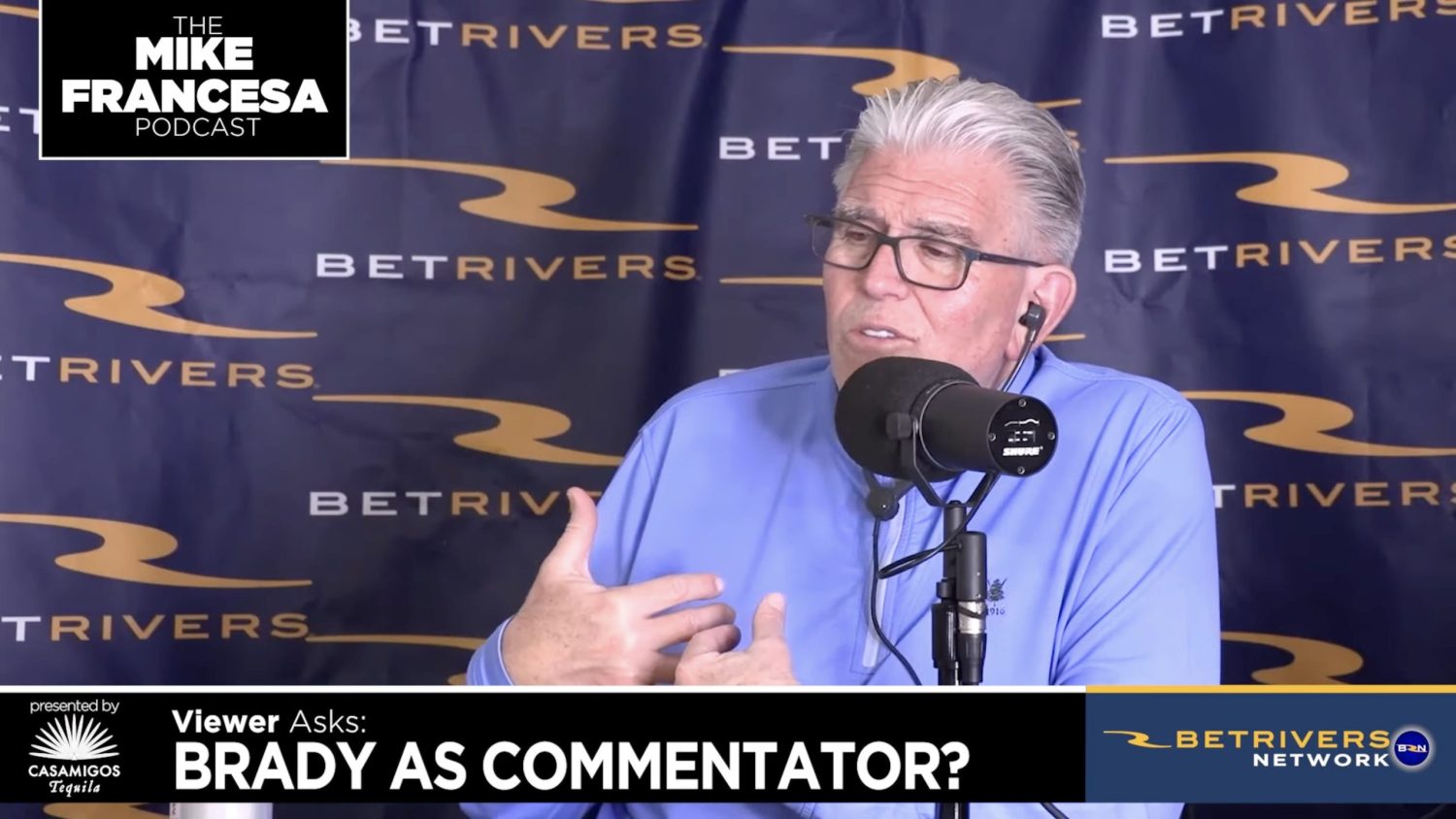It’s no secret these are tough times for ESPN.
In an age of cord-cutting, declining revenues and younger fans who would rather get their sports news from social media than a TV network, the future is uncertain.
James Andrew Miller, who quite literally wrote the book on ESPN, has documented the network’s evolution through the years, from SportsCenter being must-see TV to painful layoffs to media rights deals to its latest efforts to find new revenue sources.
Miller sees a very difficult path forward for the network. He appeared on The Press Box podcast at The Ringer this week to discuss ESPN’s surprising venture into sports betting. Penn Entertainment announced a deal on Aug. 10 that will pay ESPN $1.5 billion over 10 years to rebrand the company’s Barstool Sportsbook app as ESPN Bet, effective this fall. The deal also includes an additional $500 million in Penn stock options “in exchange for media, marketing services, brand and other rights provided by ESPN.”
Miller talked at length about the network’s future.
“The big story is the big story we’ve been talking about for years, right?” Miller told podcast hosts Bryan Curtis and David Shoemaker. “It used to be 100 million homes at 8 bucks a month. Now they’re down to 72 or 73, that’s a lot of money. And the erosion is happening a lot quicker than people thought.
“So the collapse of the TV bundle, which everyone used to complain about, it turns out that it was the golden goose that everybody wishes never went away.”
Miller, co-author of the 2011 book, Those Guys Have All the Fun: Inside the World of ESPN, hinted things aren’t so fun at the network these days, given the uncertainty. When asked if he sees a “strategic vision” for ESPN, Miller said he doesn’t. He also thinks Robert Iger, CEO of ESPN parent company Disney, is still searching for one.
“Well, I don’t and I think Bob is looking for one. … It turns out this conundrum that ESPN is facing is actually really, really difficult to navigate,” Miller said. “It’s financial, it’s cultural, it involves the behavior of consumers and it involves a lot of their competitors too who have recently been able to do certain things that they weren’t able to do years ago.
“(Iger’s) looking for a strategic partner but doesn’t quite know who that is or what value proposition that strategic partner needs to bring to ESPN, it’s difficult, it’s really difficult.”
Miller gave an example of that difficult path by pointing out Iger did a complete 180-degree turn on ESPN getting into the gambling business.
“I thought immediately back to 2019, when Bob Iger said they really weren’t interested in gambling,” Miller said. “That’s an easy place to go to because it seemed so certain. It just shows how quickly this ESPN story is moving.
“It’s moving very quickly. It’s not moving toward definitive answers, mind you. But the marketplace is changing, the numbers are changing, and I think Disney’s desire to do something with ESPN is changing fast.”
Critics contend ESPN is walking a dangerously thin line in both reporting the news and being involved in a sports betting venture where even the smallest news item can move the odds.
“Even people inside ESPN were somewhat surprised by it,” Miller said.







